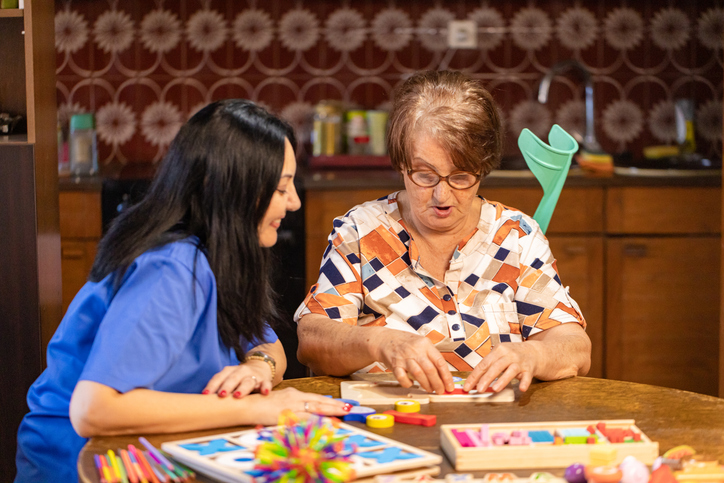Caring for aging loved ones isn’t just about meeting their physical needs—it’s also about understanding the signs of dementia and noticing the small changes that may signal something more serious. At McPeak’s Assisted Living, we’re here to support families with knowledge, compassion, and care as seniors navigate the challenges of aging. One of the most important ways we do that is by helping families recognize the early signs of cognitive decline, including dementia and Alzheimer’s disease.
When Forgetfulness Becomes More Than a Sign of Dementia
It’s normal to misplace your glasses now and then or forget a name momentarily—but when memory loss begins to interfere with daily life, it could be a sign of something more. According to the National Institute on Aging, seniors experiencing early dementia may forget recently learned information, repeat questions, or struggle to keep up with appointments and daily routines. These lapses often grow more frequent over time and may be accompanied by confusion about time, place, or how they got somewhere.
Changes in Thinking and Communication
Dementia can make everyday tasks like following a recipe or paying bills more difficult. Some individuals may also find it hard to concentrate or solve simple problems. You might notice that your loved one has trouble following conversations, forgets common words, or repeats themselves often. These changes in communication can lead to frustration or withdrawal from social activities they once enjoyed. By understanding the signs of dementia, families can better recognize when these changes go beyond normal aging and may require additional support.
Disorientation and Trouble Navigating
As dementia progresses, seniors may become disoriented even in familiar places. Getting lost on a walk, forgetting how to get home, or not recognizing surroundings that were once second nature can all be signs of cognitive decline. Visual perception may also be affected, leading to difficulty reading, judging distances, or recognizing objects and faces—sometimes even causing issues with balance and mobility.
Mood, Behavior, and Judgment Shifts in Dementia
Sometimes the first signs of dementia appear as changes in behavior rather than memory. Seniors might become unusually anxious, irritable, suspicious, or withdrawn. They may lose interest in favorite hobbies or neglect personal hygiene and grooming. In some cases, poor decision-making—like giving money away to strangers or ignoring safety concerns—may become more frequent. These behavioral shifts can be confusing and distressing for families, but recognizing them is an important first step in getting help.
How McPeak’s Assisted Living Can Help
At McPeak’s Assisted Living, we’re more than a care provider—we’re a partner for families navigating cognitive decline with their loved ones. Our trained and compassionate staff members understand the unique challenges that come with dementia and Alzheimer’s, and we work closely with families to create supportive, personalized care plans in a safe and engaging environment.
Whether your loved one is beginning to show signs of memory loss or has already been diagnosed, we’re here to help make every day more manageable, meaningful, and connected.
Learn More About Memory Support at McPeak’s
If you’re noticing changes in a loved one and aren’t sure where to turn, McPeak’s is here to help. Our caring team is always available to answer your questions, offer support, and provide expert guidance every step of the way.
To speak with a team member or schedule a visit, contact us today at (631) 475-0445 or visit our website to learn more about how we help seniors and their families feel understood, supported, and cared for.


